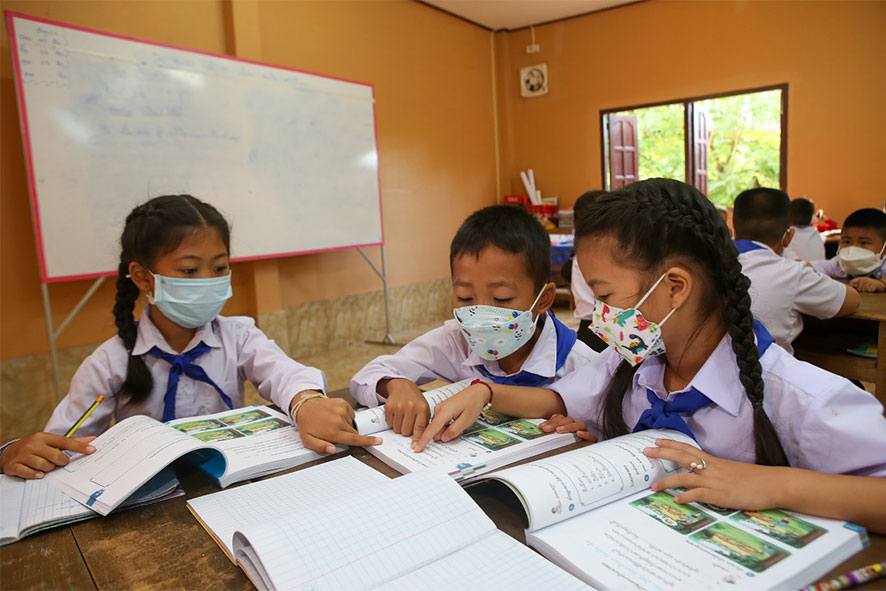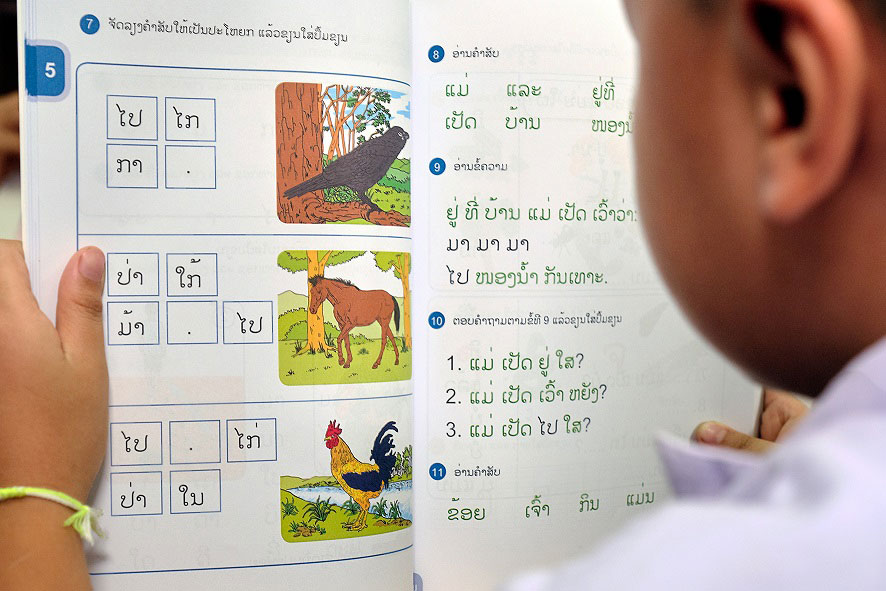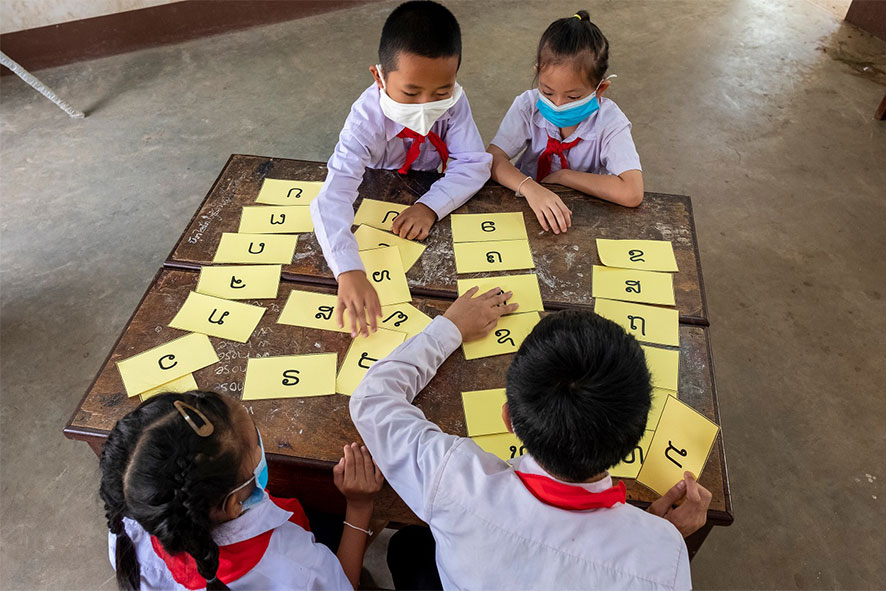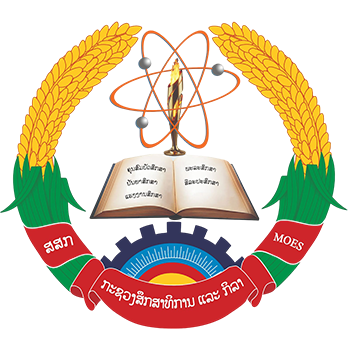
Reading together
Teaching of the new Grade 4 Lao Language curriculum, developed by the Ministry of Education and Sports with the support of Australia, starts nationally this September
Literacy is one of the most important skills when it comes to personal growth, culture and development. It is the foundation for all learning at school and in life. Can you imagine navigating modern-day life without the basic ability to read or write? On a broader scale, high literacy rates contribute to enhanced economic growth and national development.
On International Literacy Day, 8th September, Australia and the Ministry of Education and Sports recognize the importance of literacy in every local community. Since 2015, the Ministry of Education and Sports of Lao PDR has been collaborating with the Australian Government, through the BEQUAL program, to help more girls and boys of primary school-age, particularly those experiencing disadvantage, improve learning outcomes. Together, they are developing a new primary curriculum and training primary teachers on active pedagogy, with a strong focus on building children’s literacy skills.
The new primary curriculum has been progressively introduced to schools year-on-year since 2019. The annual cycle of curriculum development, production, distribution, and nationwide teacher orientation has been successfully maintained despite the challenges presented by the COVID-19 crisis. MoES curriculum writers have been working hard, finding ways to progress despite lockdowns, and the teaching of the new Grade 4 curriculum is on track to start this September.

Story book time

Learning how to write
So far, MoES, with support from Australia, has already developed and distributed new grade 1, 2, 3 and 4Lao Language textbooks and teacher guides to 490,937 students (48% female) and 27,267 teachers and teaching principals (51% female). Grade 1 and 2 teachers also received a set of decodable readers and story books, along with some ideas for interesting activities to engage children in the stories. Some teachers were not used to reading books to children in the classroom but were keen to learn how to use the story books to improve their teaching practice. Story books are important to children and teachers. They not only entertain children, but also stimulate their imagination and language development, increase their knowledge, and give them moral guidance. Story books can also give children an idea of how to deal with problems they are facing.

Learning how to read in grade 1

Learning to read the alphabet with flashcards
The Grade 4 Lao Language curriculum continues to support students to develop their Lao language skills in the areas of listening, speaking, reading and writing through an active learning approach. Lessons are organized around themes which provide a relevant and engaging context for student learning. One theme is carried across two lessons to give students an opportunity to deepen their ideas and build their language related to the theme. Guiding questions in each lesson provide a focus within the theme and encourage students to develop and express their own ideas.
Recognizing that 38% of the children entering primary school do not have Lao as their first language, Australia is supporting the Ministry of Education and Sports to develop a Spoken Lao Program that will provide these children with additional support for developing the oral language skills that form the foundation for literacy.
Through the BEQUAL program, the Australian Government is proud to support the Ministry of Education and Sports of Lao PDR to improve literacy towards a brighter future for all girls and boys.



 ພາສາລາວ
ພາສາລາວ